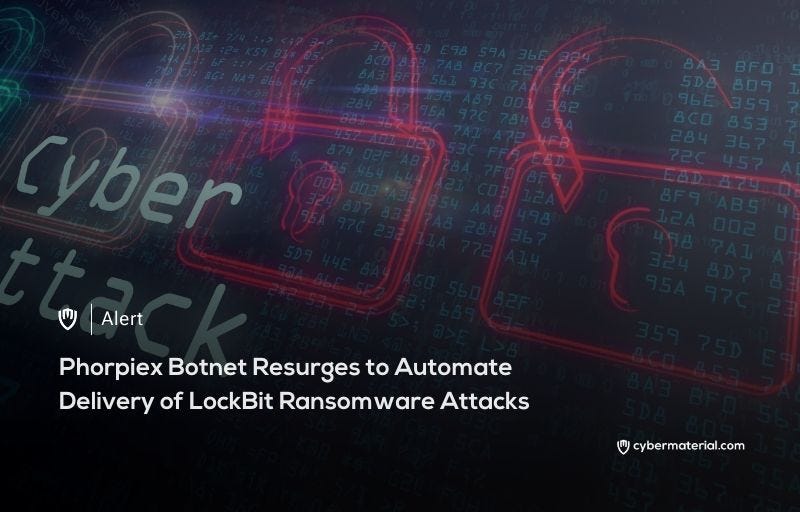
Cybereason Security Services has published a detailed analysis revealing the re-emergence of the Phorpiex botnet, which is now playing a key role in deploying the LockBit Black Ransomware (LockBit 3.…

Cybereason Security Services has published a detailed analysis revealing the re-emergence of the Phorpiex botnet, which is now playing a key role in deploying the LockBit Black Ransomware (LockBit 3.…